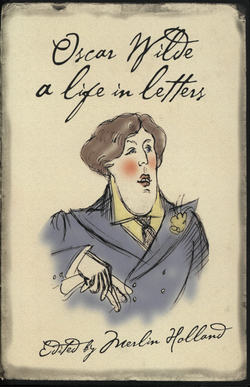Читать книгу Oscar Wilde: A Life in Letters - Оскар Уайльд, Merlin Holland, F. H. Cornish - Страница 22
To Lord Houghton
Оглавление[Circa 17 May 1877] 1 Merrion Square North
Dear Lord Houghton, Knowing your love and admiration for John Keats I venture to send you a sonnet which I wrote lately at Rome on him: and should be very glad to know if you see any beauty or stuff in it.
Someway standing by his grave I felt that he too was a Martyr, and worthy to lie in the City of Martyrs. I thought of him as a Priest of Beauty slain before his time, a lovely Sebastian killed by the arrows of a lying and unjust tongue.
Hence – my sonnet. But I really have other views in writing to you than merely to gain your criticism of a boyish poem.
I don’t know if you have visited Keats’s grave since a marble tablet in his memory was put up on the wall close to the tomb. There are some fairly good lines of poetry on it, but what is really objectionable in it is the bas-relief of Keats’s head – or rather a medallion profile, which is extremely ugly, exaggerates his facial angle so as almost to give him a hatchet-face and instead of the finely cut nostril, and Greek sensuous delicate lips that he had, gives him thick almost negro lips and nose.
Keats we know was lovely as Hyakinthos, or Apollo, to look at, and this medallion is a very terrible lie and misrepresentation. I wish it could be removed and a tinted bust of Keats put in its place, like the beautiful coloured bust of the Rajah of Koolapoor at Florence. Keats’s delicate features and rich colour could not be conveyed I think in plain white marble.
In any case I do not think this very ugly thing ought to be allowed to remain: I am sure a photograph of it could easily be got, and you would see how horrid it is.
Your influence and great name could achieve anything and everything in the matter, and I think a really beautiful memorial might be erected to him. Surely if everyone who loves to read Keats gave even half-a-crown, a great sum of money could be got for it.
I know you always are engaged in Politics and Poetry, but I feel sure that with your name at the head of the list, a great deal of money would be got: in any case the ugly libel of Keats could be taken down.
I should be very glad to hear a line from you about it, and feel sure that you will pardon my writing to you on the subject. For you are fitted above all others to do anything for Keats’s memory.
I hope we will see you again in Ireland: I have very pleasant memories of some delightful evenings passed in your society. Believe me yours truly
OSCAR WILDE
Oscar turned the spare time on his hands to good account. Apart from writing to Lord Houghton about Keats (which gained him a valuable letter of introduction when he went to America four years later) he penned his first piece of art criticism on the Grosvenor Gallery and had it published by the Dublin University Magazine. If the pleasure he took in this was somewhat soured by the death that summer of his ‘cousin’, Henry Wilson (actually one of Sir William’s three illegitimate children), it was later increased by the notice which Walter Pater took of the copy of the review which Wilde had calculatingly sent him.
